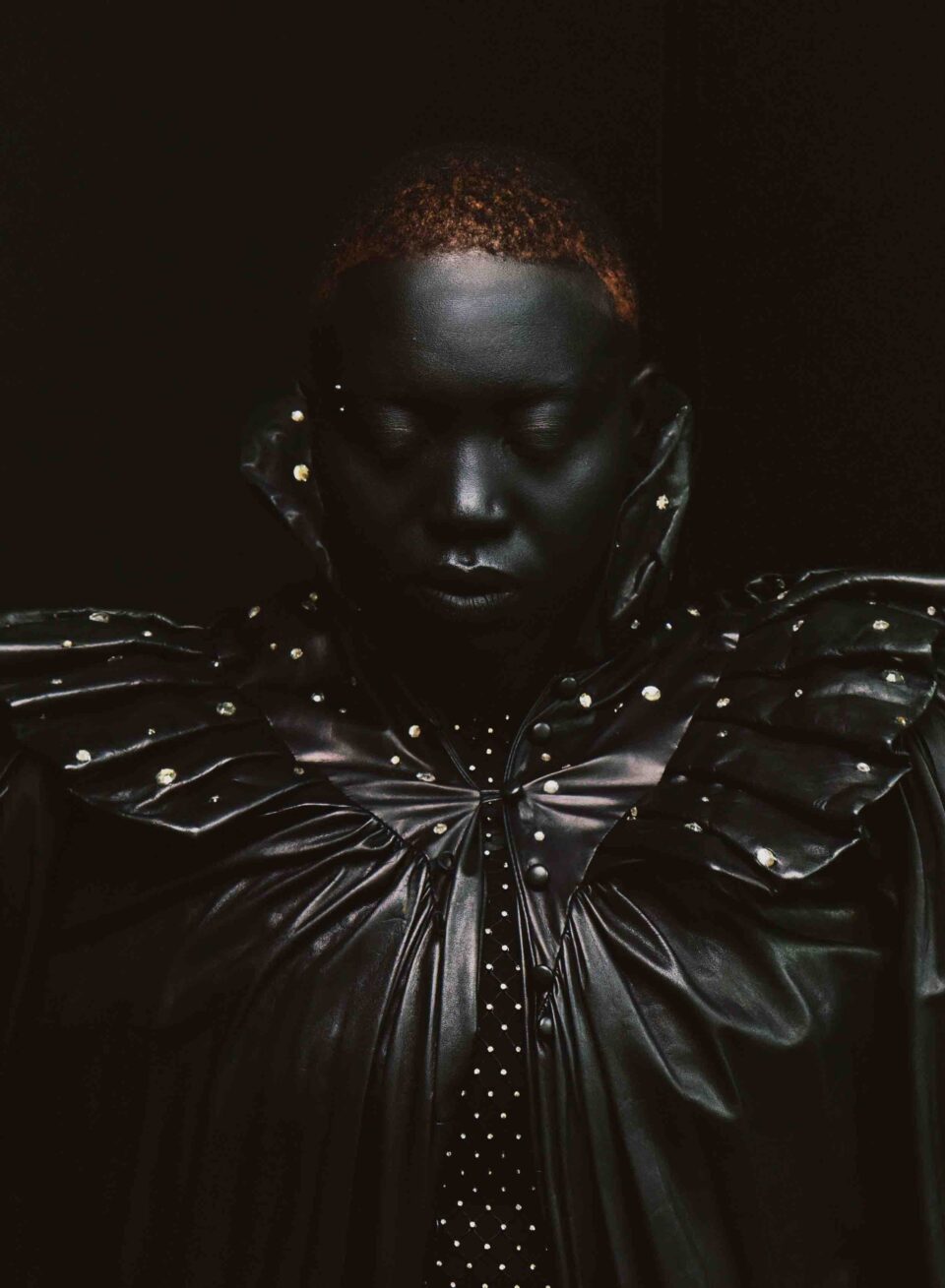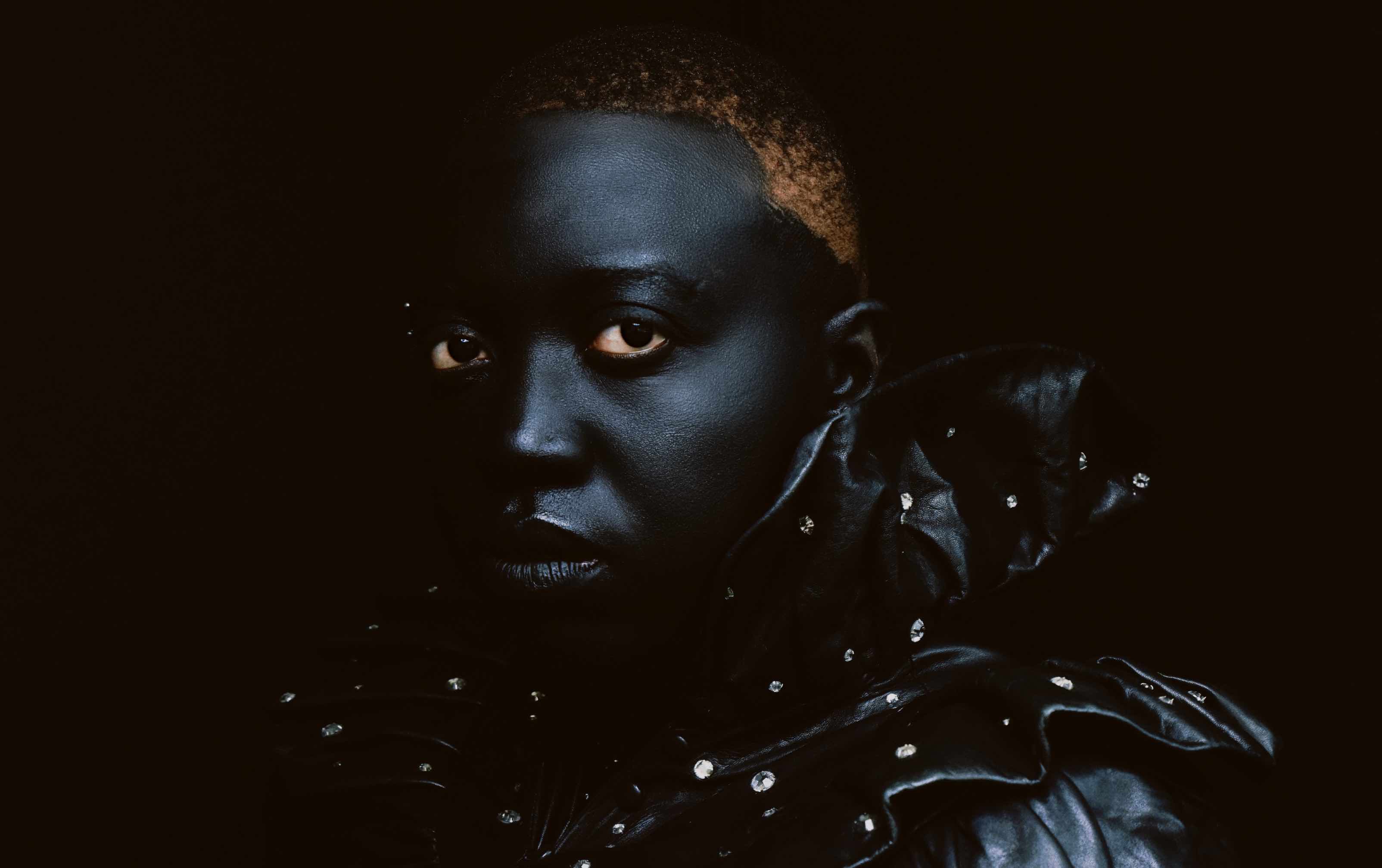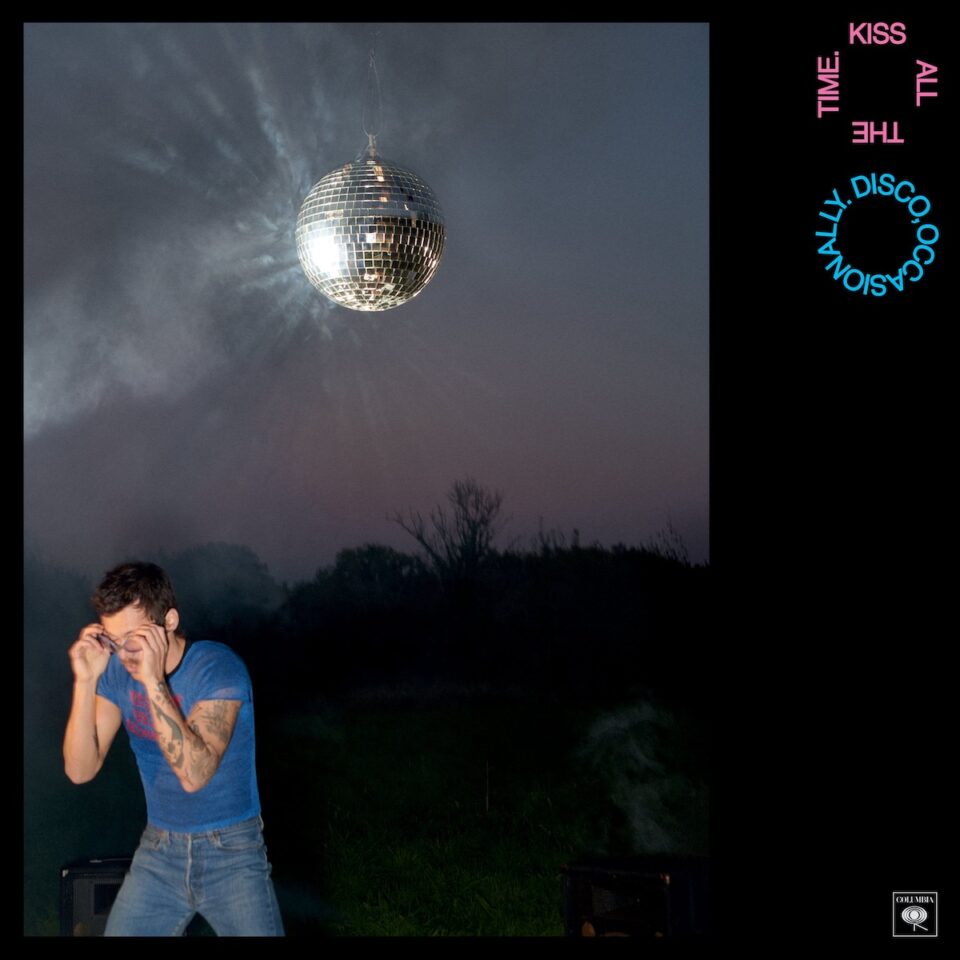On Anjimile’s new album The King, he creates a myth. Inspired by blues musician Robert Johnson and The Beatles, the songwriter based in North Carolina wanted a world of his own to rule over. The record sees Jimi buying the devil’s soul and ascending to the throne, excavating his uncomfortable, tortured feelings and, as he explains, “mak[ing] a statue out of them and pray[ing] to them.” These feelings range from anger about police brutality, to reckoning with his own internalized homophobia and transphobia, to the externalized transphobia he experienced from those around him. As a result, The King is both ruminative and explosive, a hard-charging epic rooted in the songwriter’s need for agency.
For The King, Anjimile went to LA and recorded with producer Shawn Everett, who, in Jimi’s words, is one of the most talented people on this planet. Alongside collaborators like Brad Allen Williams and Sam Gendel, Jimi and Shawn translated the artist’s early demos into a massive album built around a singular instrument—every sound you hear on The King comes from the guitar. Rather than coming across as gimmick, this decision gives the album a radical cohesion, a brilliant lived-in-ness that makes it at once intimately familiar and bravely otherworldly.
We chatted with Anjimile about revisiting old songs, sobriety, and channeling anger into his music.
Some of these songs are fairly old. Is it odd revisiting them either in interviews or on tour?
It definitely was with the last album. But in this case not as much, because the recording process really transformed the demos in an extreme way. Once the album was finished, it was [like] listening to different music—it’s just so much different than the way that it started.
How did your relationship evolve with Shawn Everett?
I went out to LA because the label [4AD] was like, “Hey, would you be interested in working with a producer?” And I was like, “Well fuck, what have I got to lose?” So they sent me out to LA and I met a bunch of different producers in a speed-dating fashion over the course of about five days. I think Shawn was the last or second to last producer I met. It’s hard to explain, because everybody that I met was super kind and, of course, extremely talented and quite capable. I was looking for somebody with soul. I didn’t really know how it would be to work with a fancy producer, but Shawn had soul.
“The recording process really transformed the demos in an extreme way. Once the album was finished, it was like listening to different music.”
Also, he’s just cool as shit. I mean, on my side, it was just kind of love at first sight. I got to his studio, I texted him and he was like, “Sorry, I’ll be out there in a minute.” And then he opens the door a couple minutes later and he’s like, “Sorry I’m late, I was making some toast.” He’s just holding a piece of buttered toast. He kind of giggled, and then I kind of giggled, and then we just laughed. I was like, “This is a vibe.” Then I got to see his mind work over the next couple of months and it was absolutely the most fulfilling creative experience I have ever had.
We had dinner and he was like, “What if every sound on this album was recorded with an acoustic guitar? Because I think I can make an acoustic guitar sound like any instrument, and I think that it would create a sense of sonic cohesion and a unique spectral world.” And then he fucking did it!
Were you skeptical about how it would sound?
I wasn’t skeptical of him. I was skeptical of my personal abilities as a player to make that work. Eventually, though, I got to the place of, “If Shawn can do it, I probably can do it too.”

“I was like, ‘Well, I want a myth. I mean, I can have fucking myth, right, you guys?’”
I know you’re sober, does that inform your songwriting process in any way?
I think it does a little bit. In different ways, as time passes, I think my sobriety informs my spiritual life and spiritual beliefs, which then tend to inform whatever I’m writing about musically. But I’m writing less explicitly about being a drunk more as time passes.
What is the ethos of The King? Can you put it into words?
I’m interested in building myths as an artist. Me and Shawn were talking about the myth of Robert Johnson, who famously sold his soul to the devil in exchange for killer guitar skills. And I just got really, really fixated on that myth. I was like, “Well, I want a myth. I mean, I can have fucking myth, right, you guys?”
The King is an album of vulnerability, but also a lot of great anger and anxiety. I was really angry when I wrote a lot of these songs, or upset in some way, and I really wanted to translate feelings of discomfort that I have, [feelings that I have] a hard time myself acknowledging that I feel them. I basically decided for this record that the ethos is that I’m the fucking devil. The devil sold his soul to me, and now I’m the king and I’m going to excavate all of these uncomfortable negative and disruptive feelings. I’m going to dig them up and make a statue out of them and pray to it.
Was the anger worldly, personal, or a combination of the two?
I think angry about police brutality, the fact that we live in a dystopia, blah, blah, blah. Also just personal anger, in terms of confronting my internalized homophobia, internalized transphobia, dealing with externalized transphobia in my family and being tired of playing the peacemaker role. I was like, “I don’t feel good, and I don’t feel obligated to make anybody else feel good either.”
That can be hard, especially when it can be assumed that people in your family will hear this album.
I knew that I was going to release these songs exactly as they were written and not change any lyrical content to assuage any potential familial conflict. What does it mean to come to terms with doing something that you’re absolutely going to do? It was kind of weird navigating that, because there was a coming to terms of it maybe not being taken well, but I eventually realized that even though it might sound cold, just because I care doesn’t mean it’s my problem.
“For this record the ethos is that the devil sold his soul to me, and now I’m the king and I’m going to excavate all of these uncomfortable negative feelings and make a statue out of them and pray to it.”
Especially when you’ve carried that burden for so long, and maybe not in a way that other people recognize.
With writing songs about other people, I err on the side of caution. You have the potential to really talk shit. You can have your one-sided argument, but I wasn’t super interested in that. I’ve just got a lot of feelings. It’s nothing my parents haven’t heard before, saying anything I haven’t said to their faces. I’ve talked to my parents about a lot of the themes on the record, and then I wrote these songs about them because I was fucking pissed. That’s the record.
Have you ever pondered what the album might’ve sounded like with a different producer, or having used more than one instrument on it?
I think it would probably sound similar to my last record. I was actually thinking in the shower the other day, “I wonder if so-and-so had produced this, it would sound completely different.” I don’t think it would necessarily be worse or better. It would just be totally different.
It’s exciting and scary to think about these alternative paths, especially because this album turned out exactly how you wanted it to.
I was excited and scared the entire time we were recording this album. I’m a proponent of parallel universes and the like. I assume that in one of many parallel universes, I worked with other producers and made a different kind of record, and it was awesome, or it sucked, or whatever. FL







